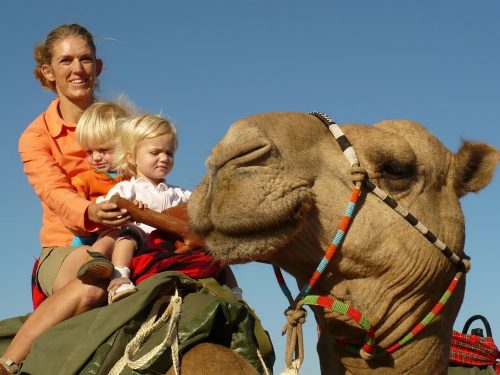
Most people have a strong opinion about camels even if they’ve never met one. They spit, they’re noble, and they’re dumb. Kerry Glen and James Christian who run Karisia Walking Safaris beg to differ on these points (except of course the observation that camels are noble).
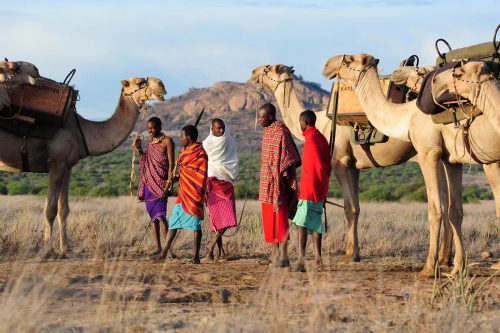
In the wilder stretches of Laikipia County in Northern Kenya, Kerry and James have been running camel supported walking safaris since 2003. On Tumaren, their ranch that they manage exclusively for wildlife, guests experience a diversity of large game while walking with the dromedaries that amble alongside carrying water and snacks. Children who tire more easily often prefer to game-spot from camelback, at times being able to quietly approach Reticulated Giraffe and Grevy’s Zebras.
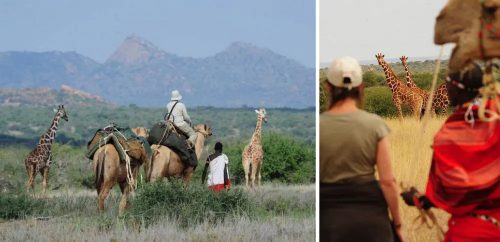
The walks are mostly guided by Kerry and James, as well as by their teams of Samburu and Maasai guides. Gabriel Ewoi, the lead guide, is simultaneously fluent in the Latin and English names of the fauna and flora, as well as in the cultural, geological and ecological stories that piece Laikipia together, and regards himself as somewhat of an Elephant Whisperer.
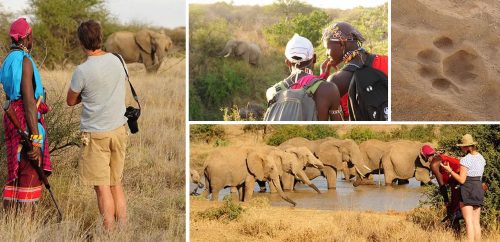
A typical day on a Karisia Walking Safari starts early in the morning in order to beat the midday sun – and perhaps see a predator. Pre-dawn “hodi hodi” (“knock knock” in Swahili), greets guests with hot water delivered to the tents. The tents themselves are canvas and a sturdy traditional design, with separate long-drop loo and bucket shower tents situated just behind each one. Whilst it is sometimes hard to emerge from the exceptionally comfortable duvets, the glorious dawn makes it nearly always worth it.
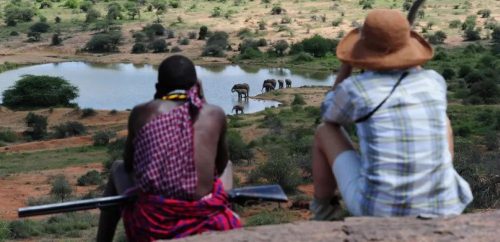
The walks each day are not terribly long and are certainly not intended as some kind of boot camp initiation. The pace is gentle as the guides and trackers listen and point out much of the natural history along the way. Huge herds of elephants call Laikipia home, and taking it slowly is always the best way to safely approach and observe these endlessly fascinating animals. As well as doing a great job pointing out the wildlife, the Karisia team is excellent at hosting children on safari. Spears are fashioned from local sticks and rungus (Maasai clubs) are cut from local acacia trees. In the late afternoon, the younger members of the team teach the children how to make a fire from scratch, or play a Maasai game of darts where the winner’s spoils are toy cows.
Guests and their guide walk into the next camp just in time for a fresh and healthy lunch, with the camp itself taking a more direct route and arriving in advance. After lunch, guests read or just rest, and typically go out again for a short walk for sundowners and a sunset to remember.
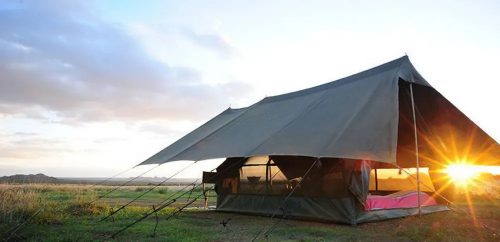
And it is in the evening, whilst sipping on a G&T, that some of the best observations of predators are made. Looking out at a setting sun falling behind the Laikipia Plateau while large game saunters below, is an experience that is indelible and authentic, and just what the team at Karisia Walking Safaris strives for.
All images courtesy of Karisia Walking Safaris.
Filed under: East Africa Travel
Subscribe for Weekly Stories
Comments (0):
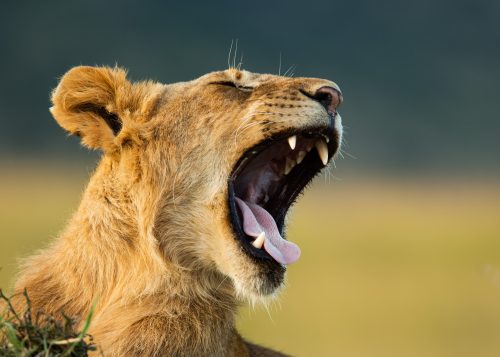
Angama Safari Offers